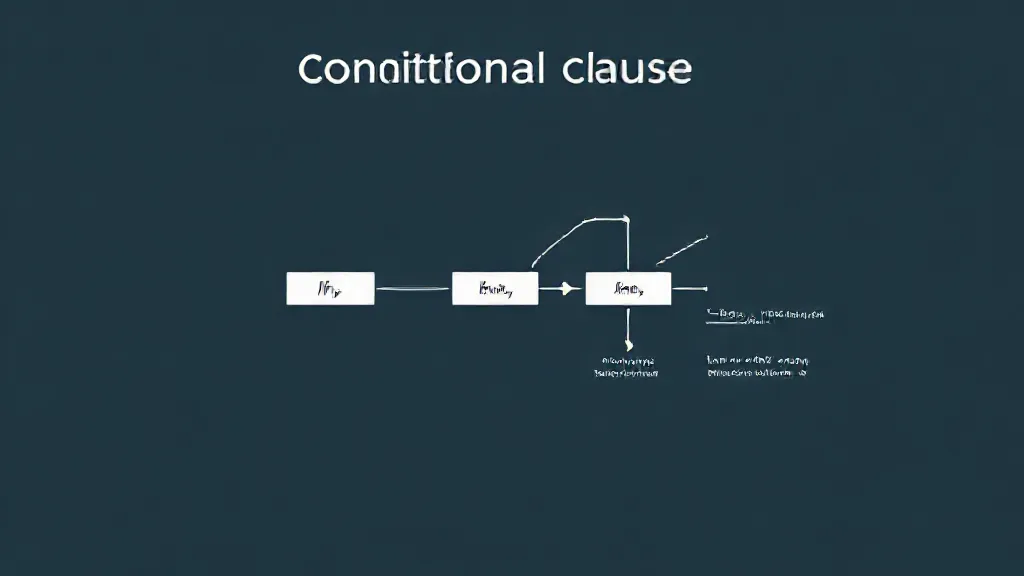Conditional clauses, often recognized by their "if-then" structure, play a pivotal role in logical reasoning and critical thinking. They allow individuals to express hypothetical scenarios, make predictions, and reason about outcomes based on certain conditions. Understanding the importance of these clauses is not merely an academic exercise; it is essential for effective communication, problem-solving, and decision-making in everyday life.
Understanding Conditional Clauses
Conditional clauses are structured as statements that link two propositions: a condition and a consequence. The classic example is "If it rains, then the ground will be wet." Here, the first part ("If it rains") sets a condition, while the second part ("then the ground will be wet") presents the outcome that follows from that condition.
This structure is foundational in both formal logic and natural language, enabling us to navigate complex scenarios with clarity.
The Role of Conditionals in Logical Reasoning
In logic, conditional statements are crucial as they form the basis of deductive reasoning. They allow us to draw conclusions from premises.
For instance, in a syllogism, one might say, "If all humans are mortal, and Socrates is a human, then Socrates is mortal." This logical flow illustrates how conditional clauses facilitate reasoning by establishing relationships between different statements, making them indispensable in philosophical discussions and scientific reasoning.
Real-World Applications of Conditional Clauses
Beyond theoretical implications, conditional clauses are deeply embedded in everyday decision-making.
For example, a business leader might say, "If we increase our marketing budget, then sales will rise." This statement not only reflects a hypothesis but also guides strategic planning. Similarly, in law, conditional clauses are used to articulate consequences of actions, which is essential for understanding legal obligations and rights.
Cognitive Development and Learning
The ability to understand and use conditional clauses is a significant aspect of cognitive development. Research in educational psychology indicates that children who grasp conditional reasoning tend to perform better in problem-solving tasks. As they learn to formulate "if-then" statements, they enhance their ability to think abstractly and engage in complex reasoning, which is crucial for academic success.
Historical Perspectives on Conditional Logic
The study of conditional logic dates back to ancient philosophers like Aristotle, who laid the groundwork for formal logic. Over centuries, thinkers such as Gottfried Wilhelm Leibniz and George Boole expanded on these ideas, leading to modern logical frameworks. The evolution of conditional clauses reflects broader developments in mathematics, philosophy, and linguistics, illustrating their enduring significance.
Challenges in Understanding Conditionals
Despite their importance, conditional clauses can be challenging to comprehend, particularly for language learners or those unfamiliar with logical reasoning. Ambiguities in natural language can lead to misinterpretations. For instance, the statement "If you study hard, you will pass" can be misconstrued if the listener does not understand the implied connection between effort and outcome.
Educators must address these challenges to foster better understanding.
Enhancing Communication Through Conditional Clauses
In effective communication, conditional clauses serve as tools for negotiation and persuasion. By articulating conditions and potential outcomes, individuals can clarify their intentions and expectations.
For instance, in a collaborative project, one might say, "If we meet the deadline, then we can secure additional funding." This not only conveys a clear message but also sets the stage for accountability and mutual understanding.
Conclusion: The Indispensable Nature of Conditional Clauses
In conclusion, conditional clauses are not just grammatical constructs; they are fundamental to logical reasoning, critical thinking, and effective communication.
Their ability to connect conditions with outcomes allows individuals to navigate complex scenarios, make informed decisions, and articulate their thoughts clearly. As we continue to engage with the world around us, fostering a deep understanding of conditional clauses will enhance our reasoning abilities and enrich our interactions.
